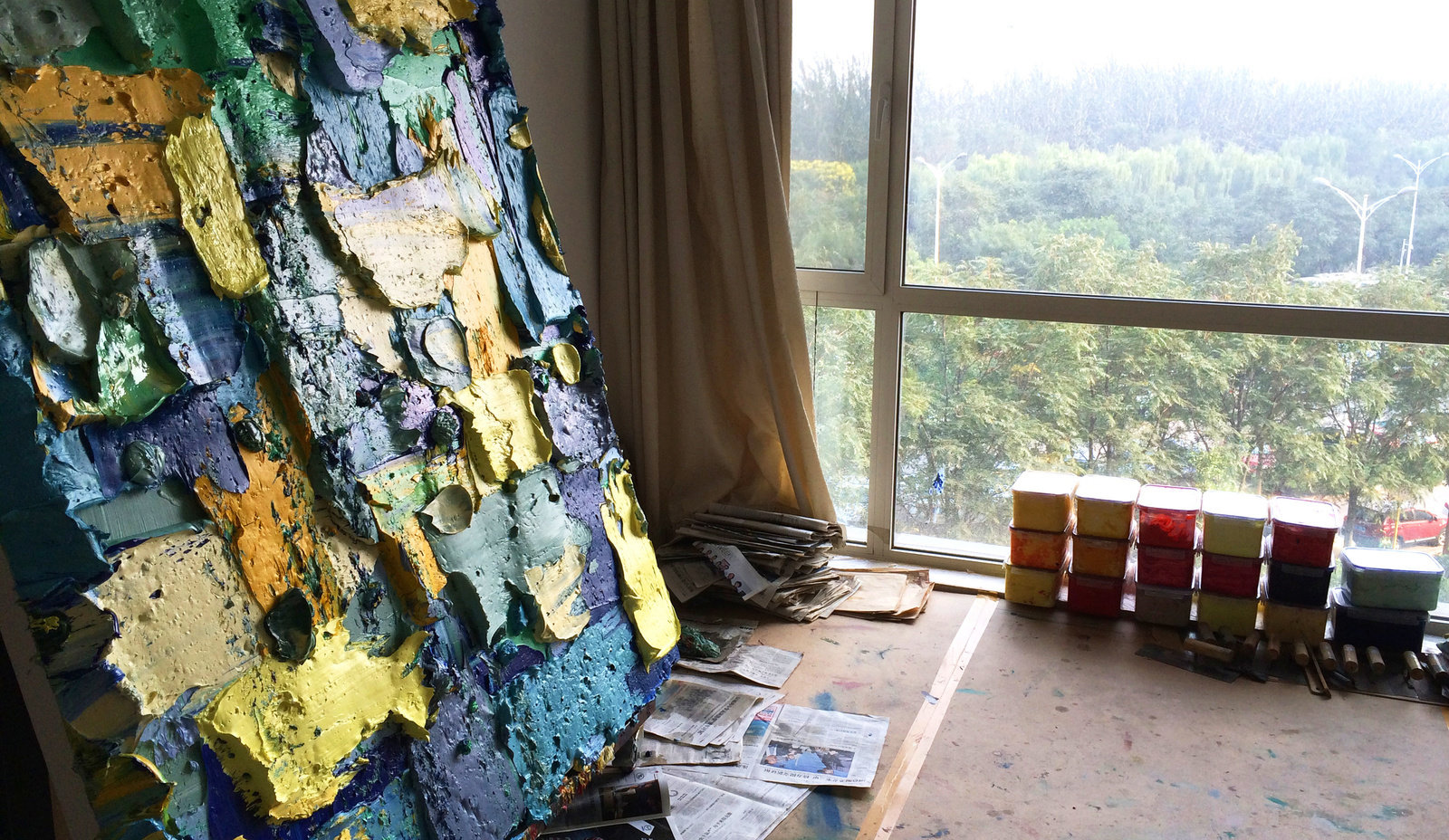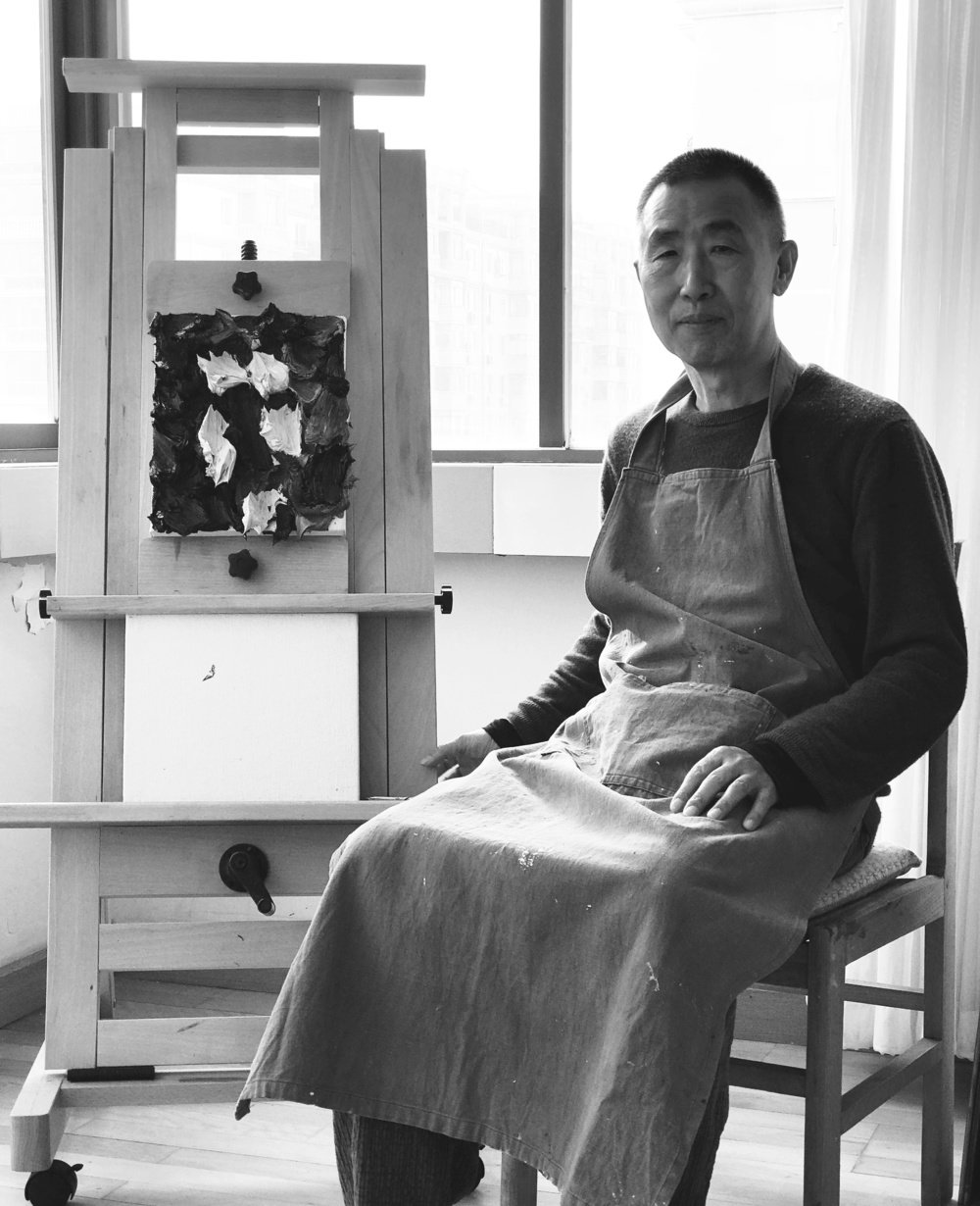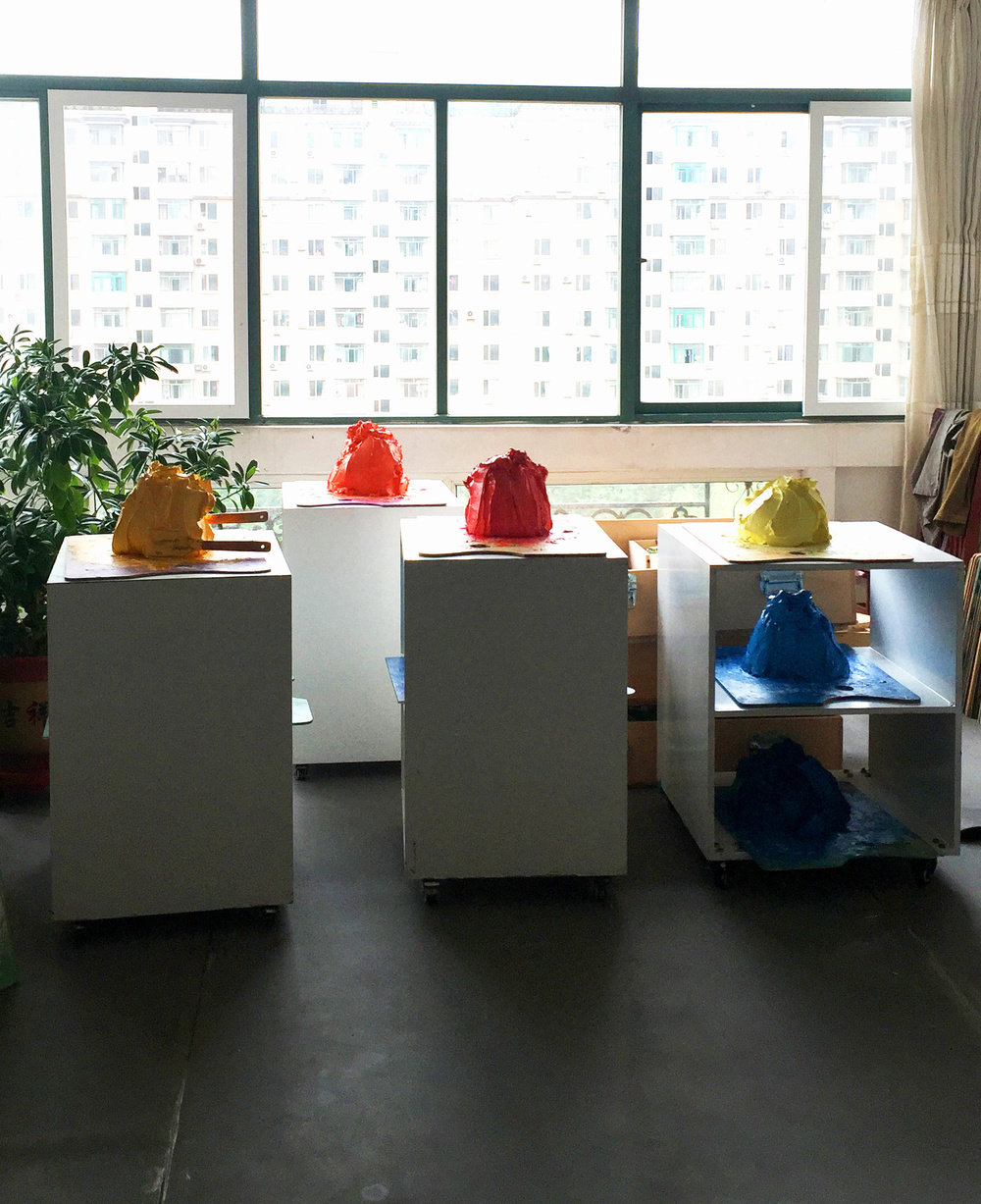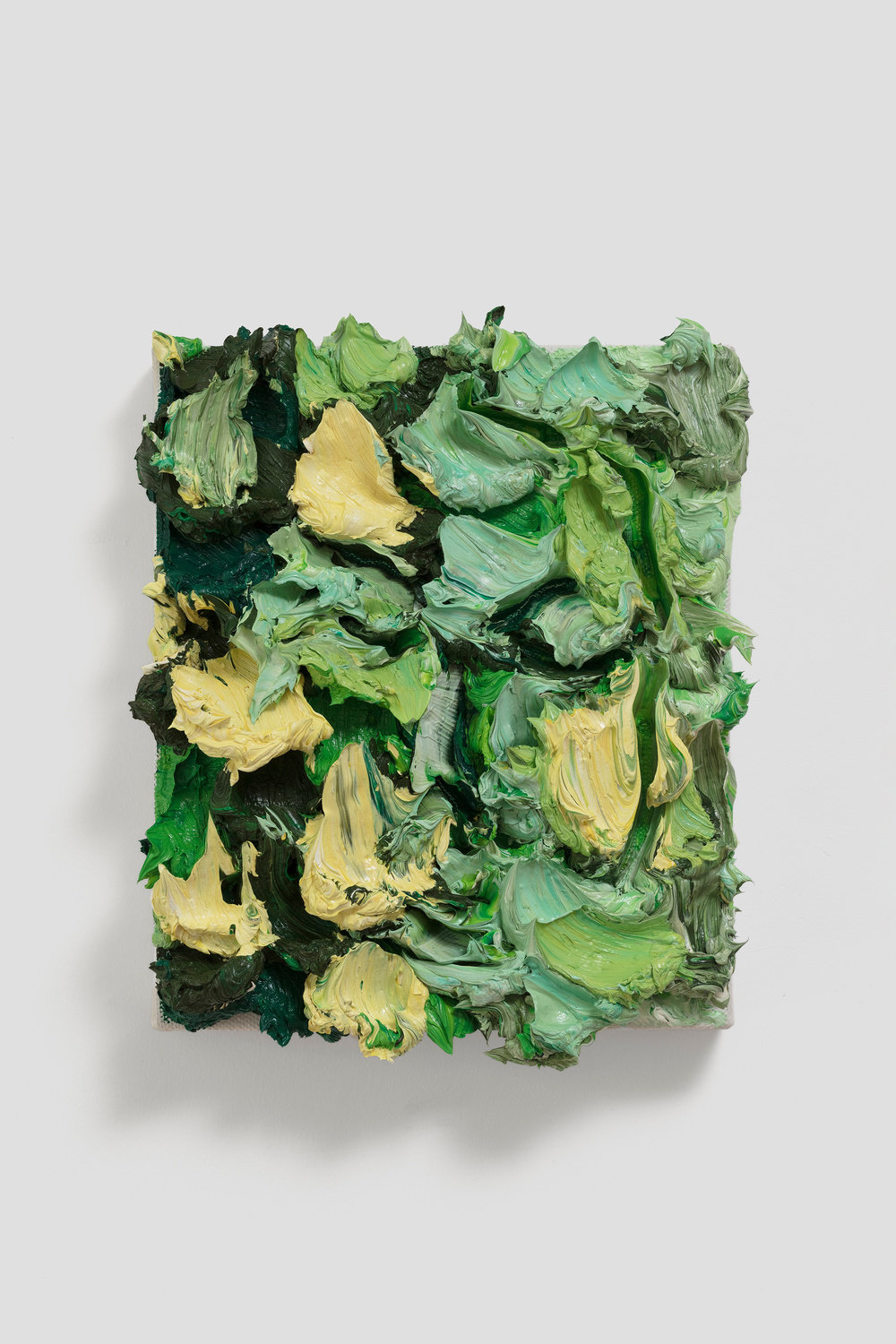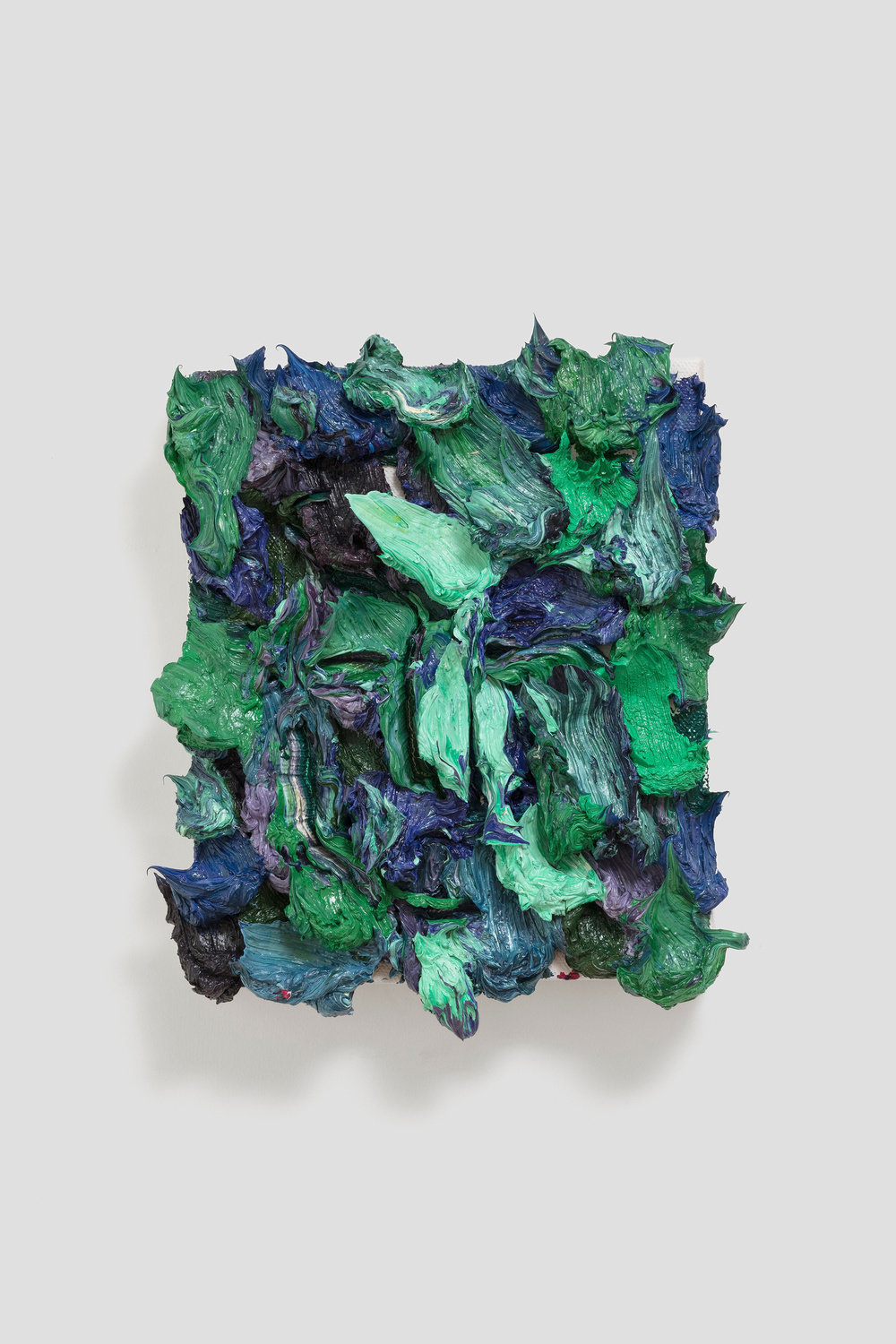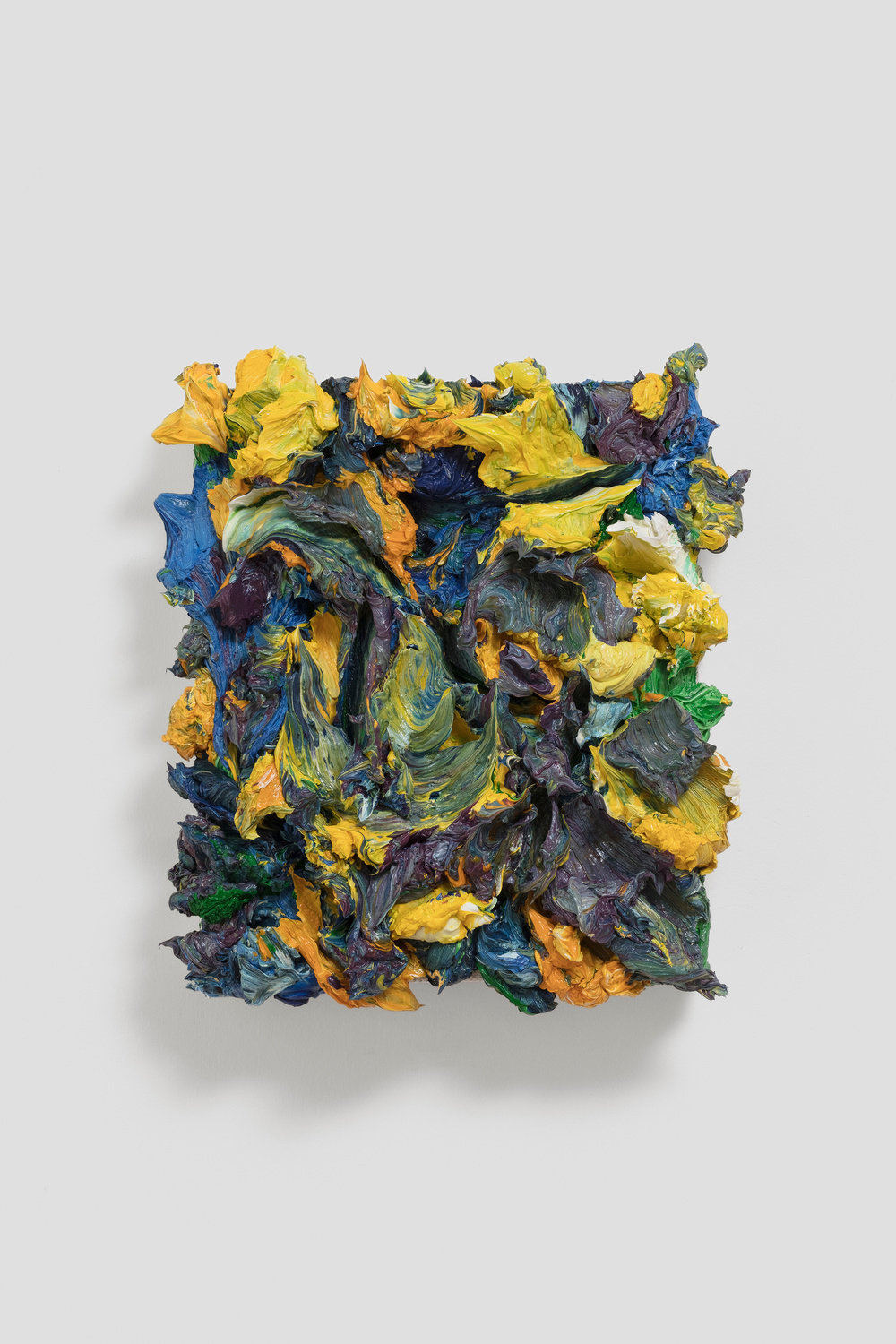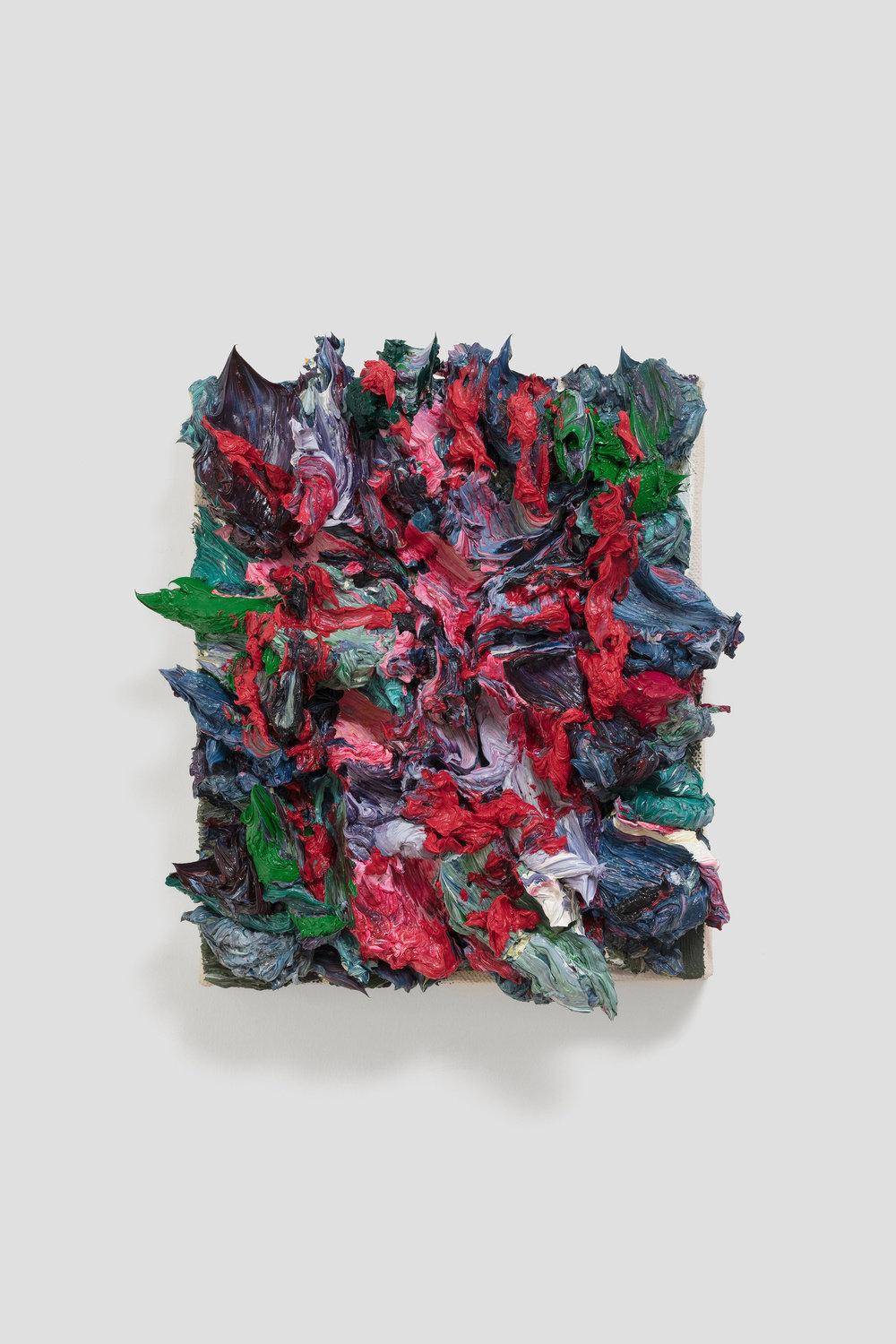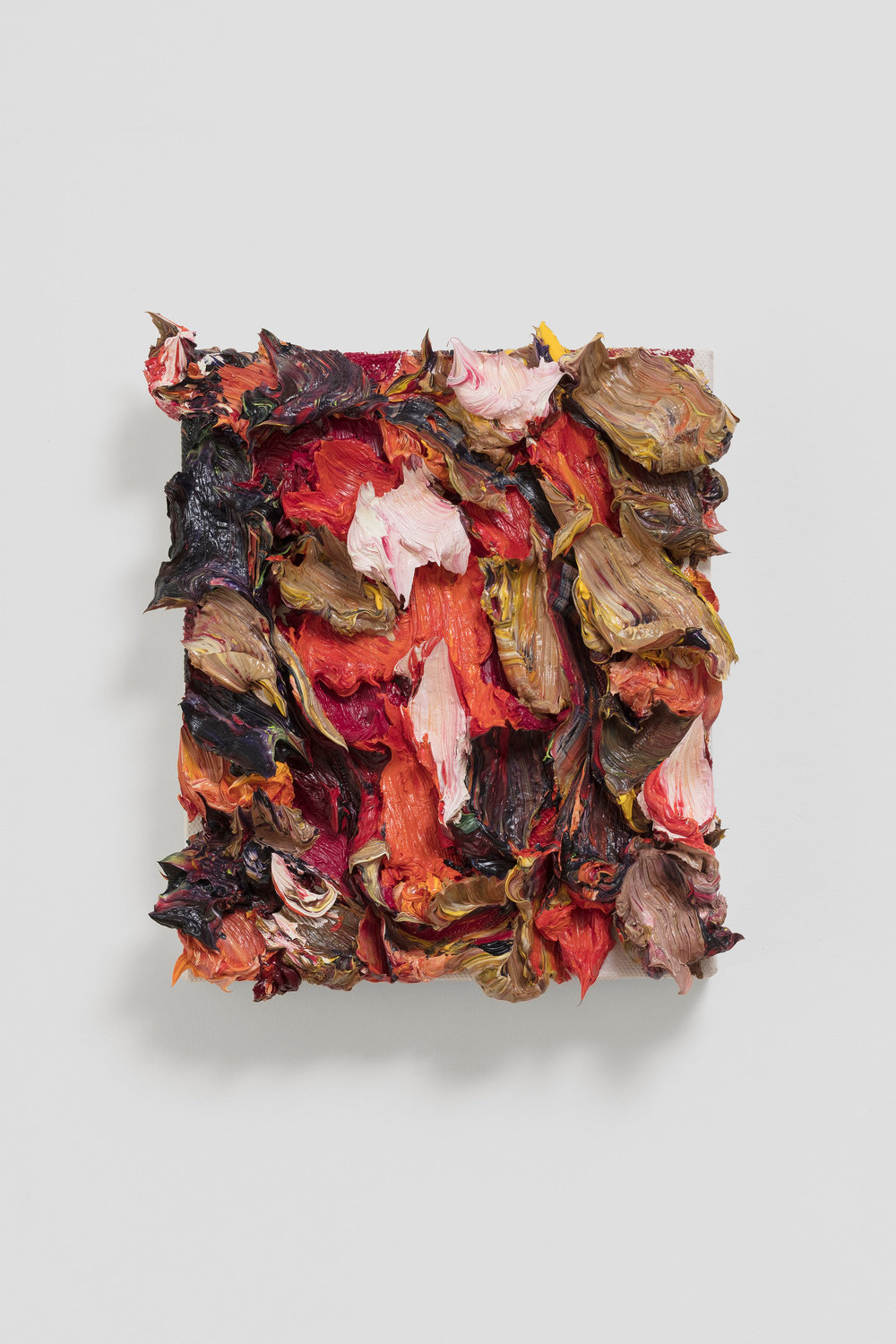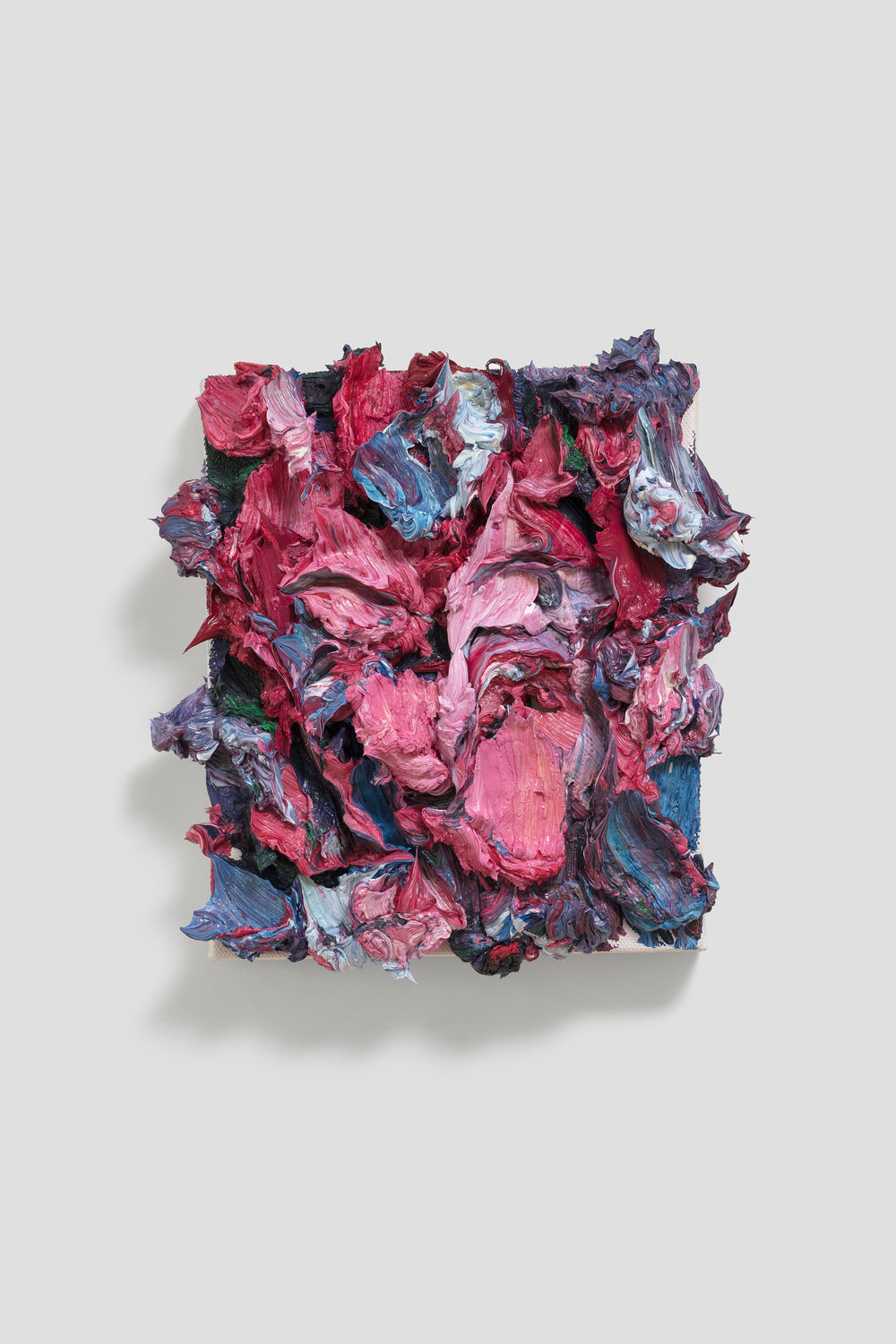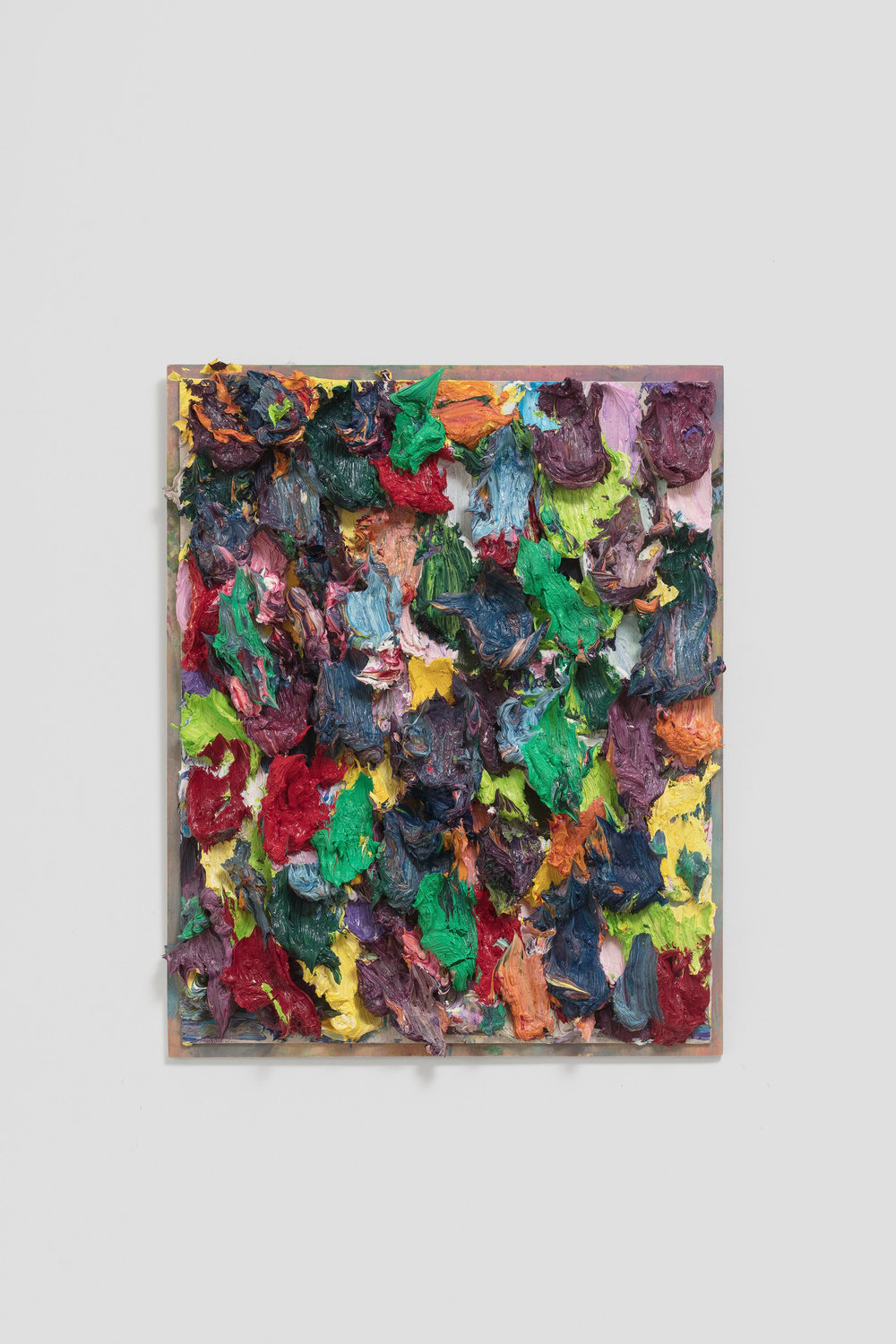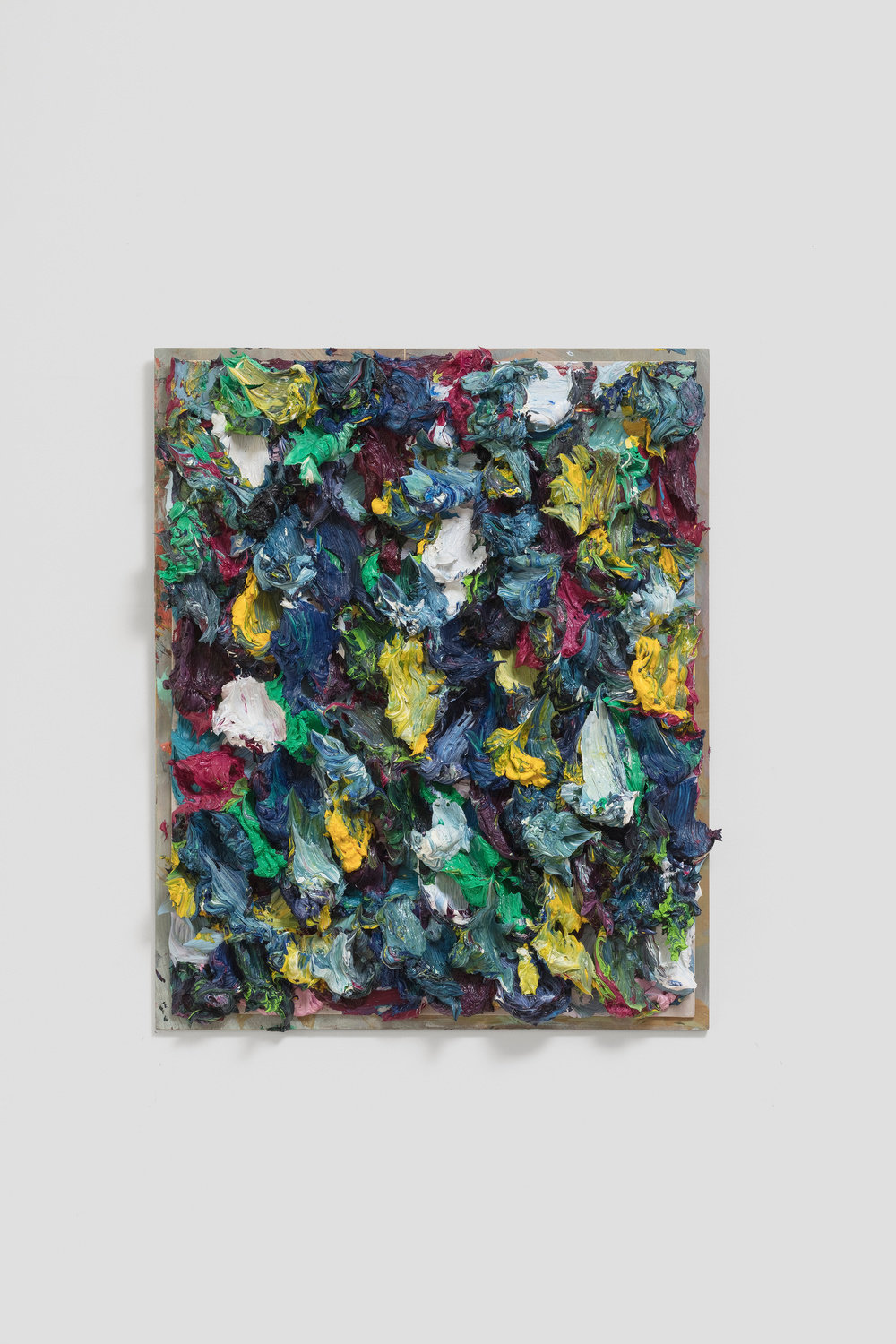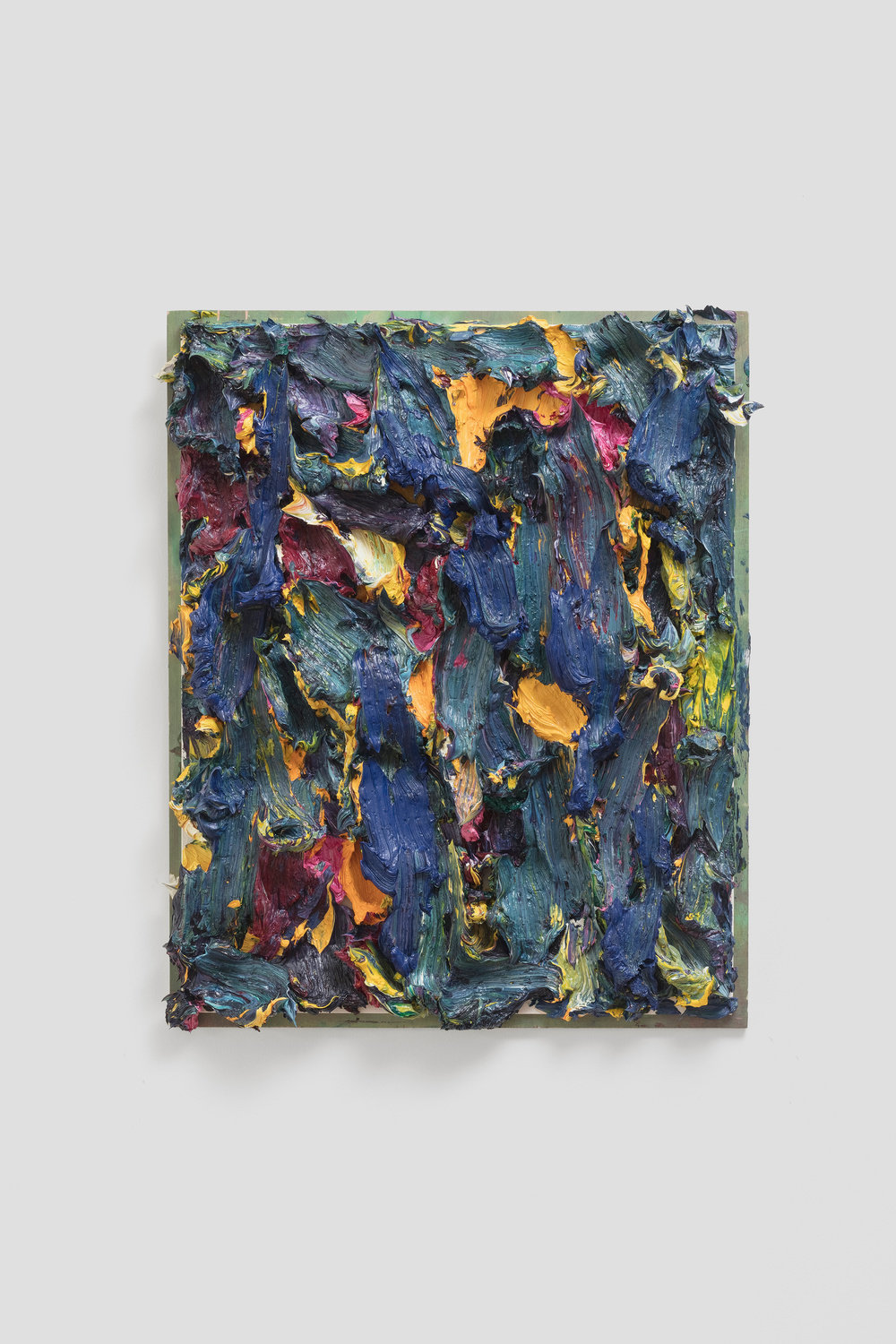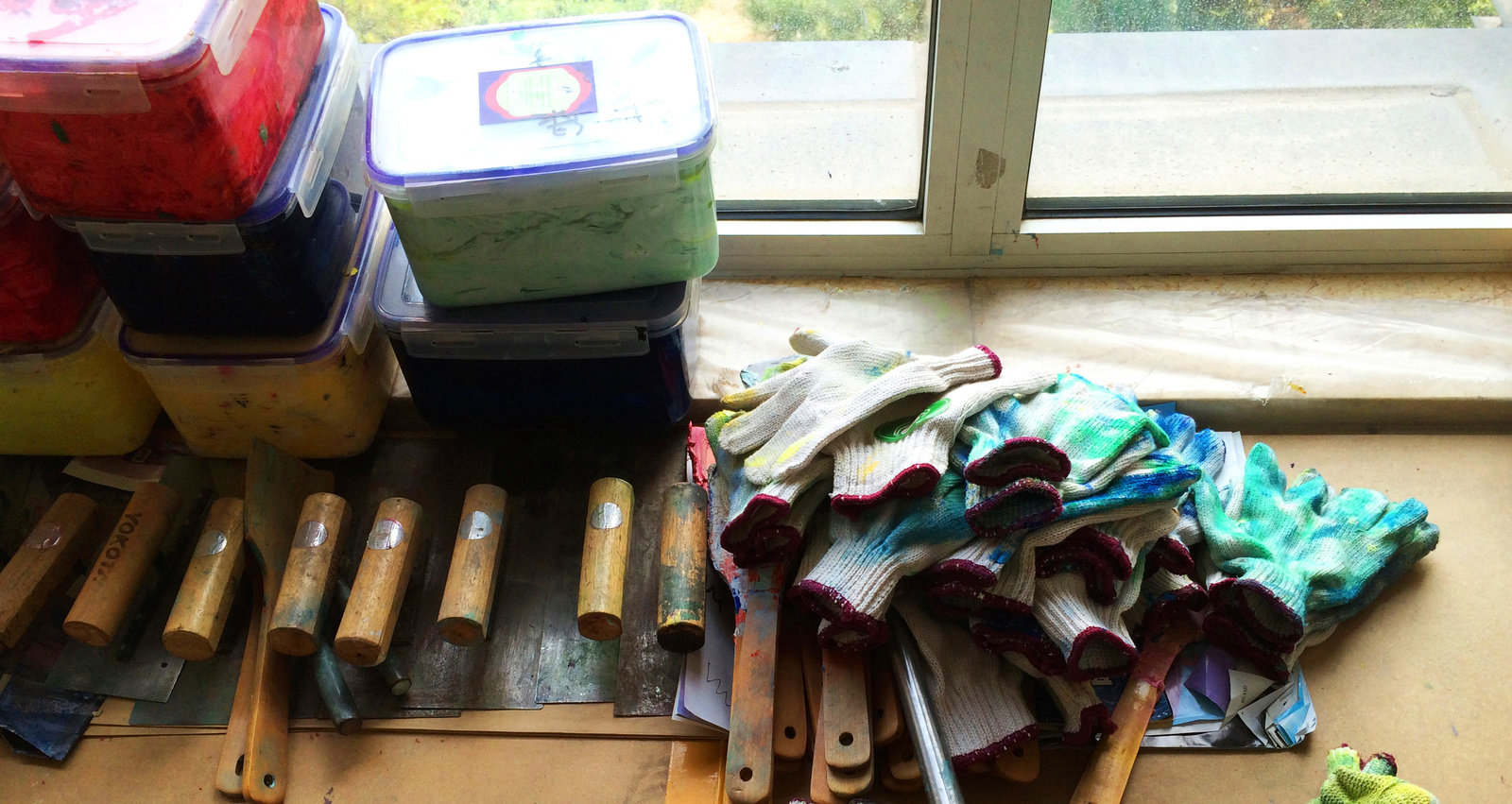

Blum & Poe Broadcast is pleased to present a solo exhibition of recent small paintings by Beijing-based artist Zhu Jinshi. More information on the artist here.
To subscribe to our mailing list, please click here. To be in contact with our team, please follow the INQUIRE links below.
This Broadcast is accompanied by a new video segment in which Zhu Jinshi discusses his recent practice, providing a rare glimpse into the reclusive artist’s thought processes and his Xiangtang studio located in the outskirts of Beijing. Zhu touches upon his approach to color, the tools of painting as methodological carriers of tradition, art historical influences, and his playful relationship with abstraction and representation.
Zhu's practice is distinct for a certain monumentality—the sheer physicality of his abundant impasto paintings and expansive xuan paper installations command a space with drama and poetry. His recent body of small format works which he began in late 2019 carries the same substantiality but marks a notable return to a period of more focused introspection in his cycle of artmaking.
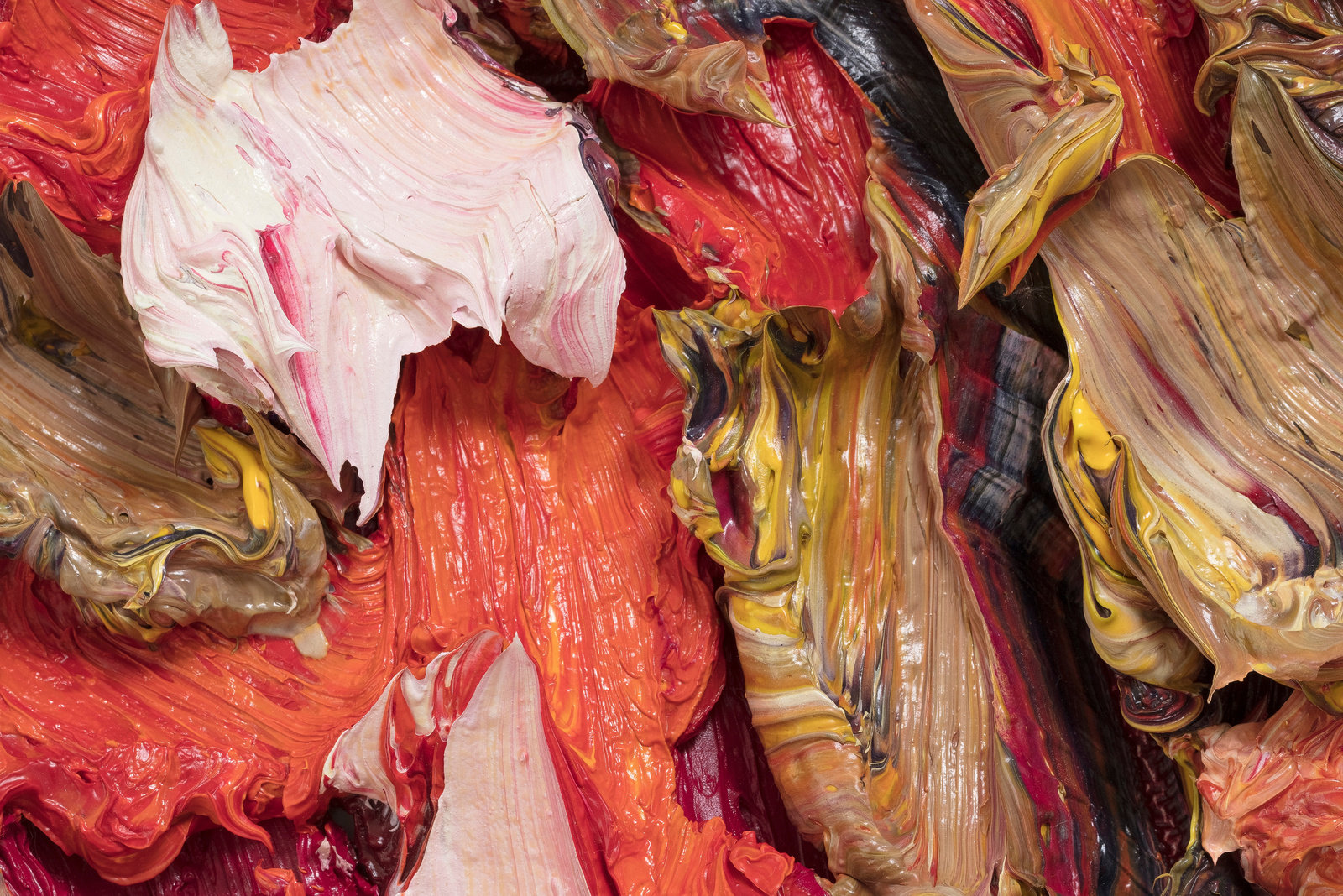

Zhu describes painting at this limited scale as practicing within the mathematical challenges of a smaller canvas, but also as a kind of renegotiation with tradition. Setting aside his usual arsenal of ad hoc painting tools—spatulas, wood boards, shovels and other such applicators—in favor of the paintbrush, Zhu seeks to discover new possibilities in convention. Instead of painting upright, Zhu is able to set the smaller canvas on the tabletop to paint in a horizontal orientation, embodying the format of classical Chinese literati painters and calligraphers. Within the vibrant swaths of medium piled atop the canvas in overflowing swirls, the artist imagines not the action paintings of Pollock, but the portraits of Velazquez, Titian and Van Dyck.
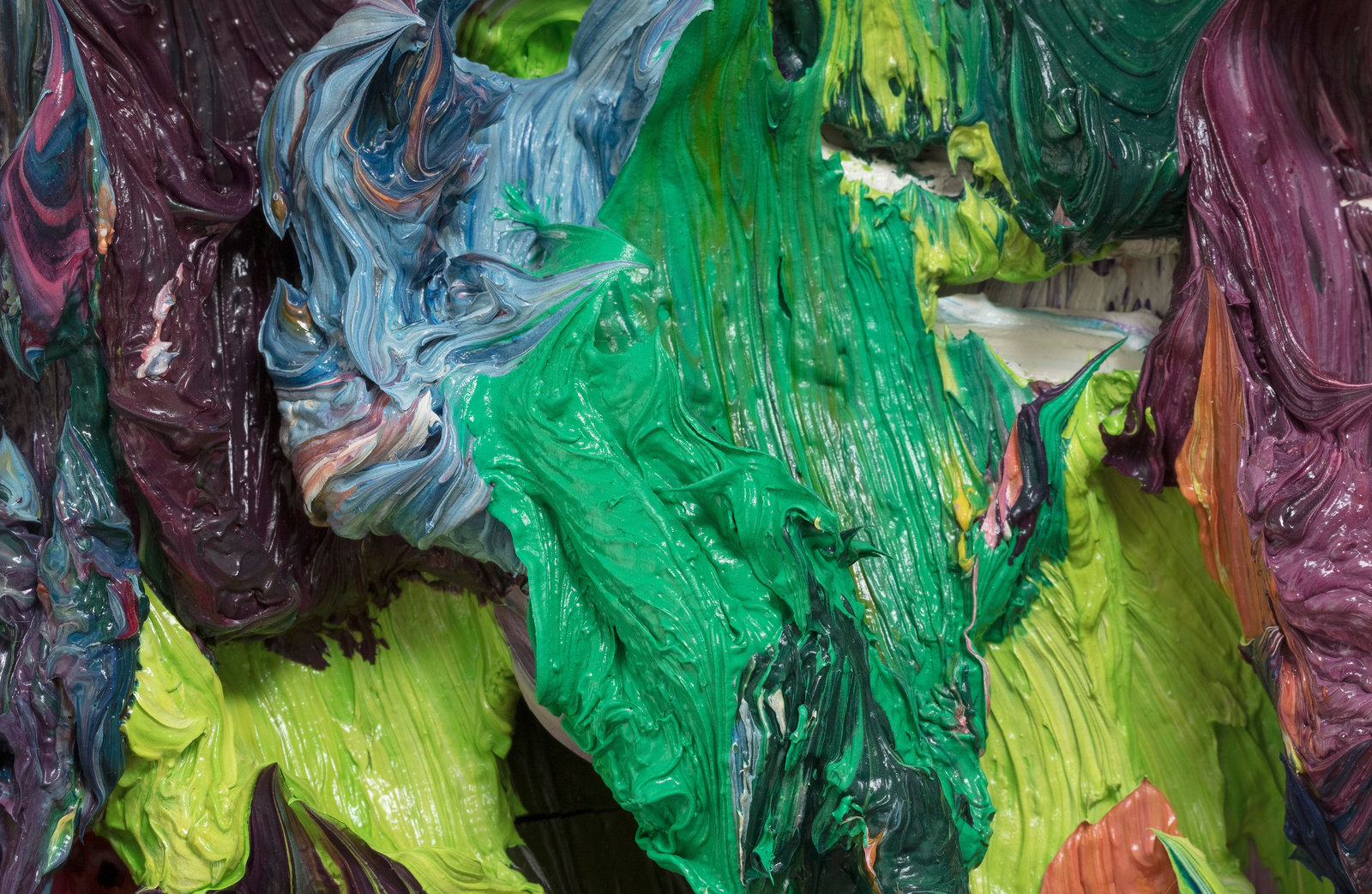

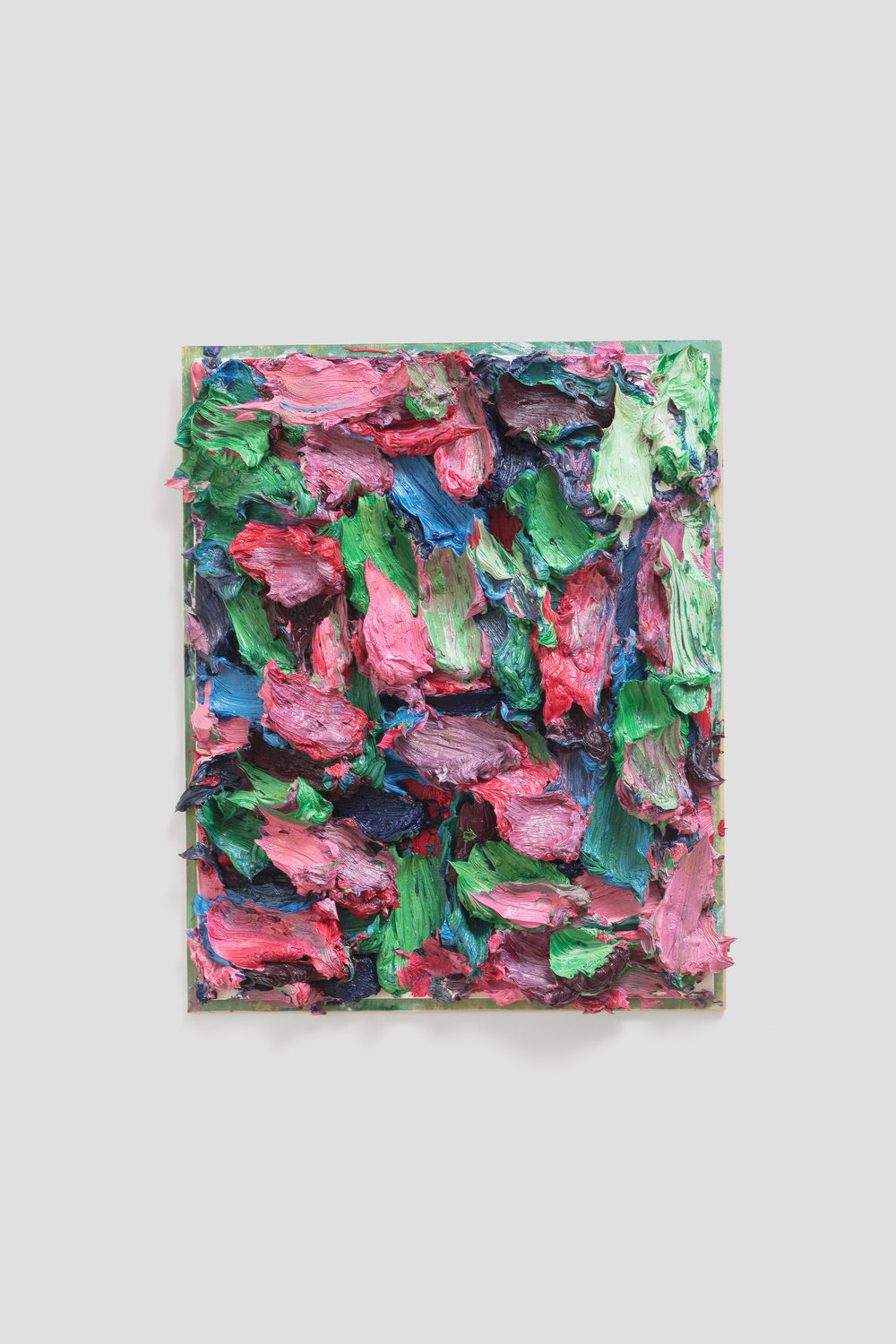
Through these retrospective gestures, Zhu continues his deconstruction of binary relationships between Western and Eastern, and tradition and contemporaneity, through an artistic lexicon he has developed over the course of his nearly fifty-year career. To borrow Buddhist terminology, Zhu strides upon the middle path in a paradoxically vigorous manner, occupying an interstitial space rife with discomfort at times, but where potential lies.
